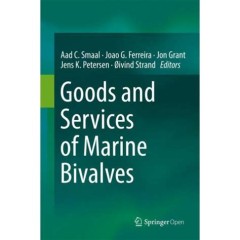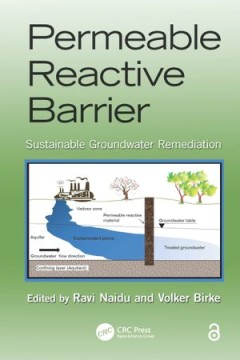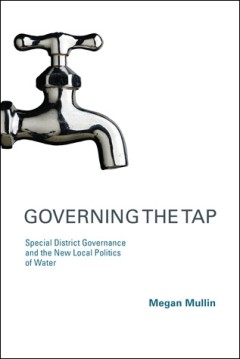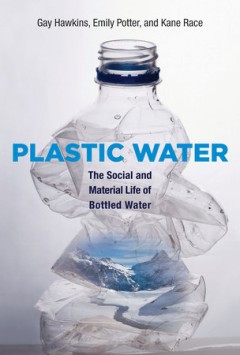Filter by

Habitats and Biota of the Gulf of Mexico: Before the Deepwater Horizon Oil Spill
This book is open access under a CC BY-NC 2.5 license. The Gulf of Mexico is an open and dynamic marine ecosystem rich in natural resources but heavily impacted by human activities, including agricultural, industrial, commercial and coastal development. The Gulf of Mexico has been continuously exposed to petroleum hydrocarbons for millions of years from natural oil and gas seeps on the sea f…
- Edition
- 1
- ISBN/ISSN
- 978-1-4939-3447-8
- Collation
- oer.unej.ac.id
- Series Title
- -
- Call Number
- 658

Maritime Spatial Planning: past, present, future
This open access book is the first comprehensive overview of maritime or marine spatial planning. Countries across the globe are beginning to implement maritime spatial plans; however the authors of this collection have identified several key questions that are emerging from this growing body of MSP experience. How can maritime spatial planning deal with a complex and dynamic environment such a…
- Edition
- 1
- ISBN/ISSN
- 9783319986968
- Collation
- XXXVII, 477 hlm; ill., lamp.,
- Series Title
- -
- Call Number
- -

Goods and Services of Marine Bivalves
The aim of this open access book is to review and analyse the goods and services of bivalve shellfish. How they are defined, what determines the ecological functions that are the basis for the goods and services, what controversies in the use of goods and services exist, and what is needed for sustainable exploitation of bivalves from the perspective of the various stakeholders. The book is foc…
- Edition
- 1
- ISBN/ISSN
- 9783319967769
- Collation
- XXV, 591 hlm,: ill, lamp;
- Series Title
- -
- Call Number
- -

Guideline for Salinity Assessment, Mitigation and Adaptation Using Nuclear an…
This open access book is an outcome of the collaboration between the Soil and Water Management & Crop Nutrition Section, Joint FAO/IAEA Division of Nuclear Techniques in Food and Agriculture, Department of Nuclear Sciences and Applications, International Atomic Energy Agency (IAEA), Vienna, Austria, and Dr. Shabbir A Shahid, Senior Salinity Management Expert, Freelancer based in United Arab Emi…
- Edition
- 1
- ISBN/ISSN
- 9783319961903
- Collation
- XXVI, 164 hlm,: ill, lamp;
- Series Title
- -
- Call Number
- -

Permeable Reactive Barrier : Sustainable Groundwater Remediation
Remediation of groundwater is complex and often challenging. But the cost of pump and treat technology, coupled with the dismal results achieved, has paved the way for newer, better technologies to be developed. Among these techniques is permeable reactive barrier (PRB) technology, which allows groundwater to pass through a buried porous barrier that either captures the contaminants or breaks t…
- Edition
- -
- ISBN/ISSN
- 9781351228886
- Collation
- -
- Series Title
- -
- Call Number
- -
The Economics of Water
This open access textbook provides a concise introduction to economic approaches and mathematical methods for the study of water allocation and distribution problems. Written in an accessible and straightforward style, it discusses and analyzes central issues in integrated water resource management, water tariffs, water markets, and transboundary water management. By illustrating the interplay …
- Edition
- -
- ISBN/ISSN
- -
- Collation
- -
- Series Title
- -
- Call Number
- -

Proceedings of PIANC Smart Rivers 2022 Green Waterways and Sustainable Navig…
This book is a compilation of selected papers from the 10th PIANC Smart Rivers Conference (Smart Rivers 2022). The work focuses on novel techniques for inland waterways and navigation structures. The contents make valuable contributions to academic researchers, engineers in the industry, and regulators of aviation authorities. As well, readers will encounter new ideas for realizing Green Waterw…
- Edition
- -
- ISBN/ISSN
- 9789811961380
- Collation
- -
- Series Title
- -
- Call Number
- -

Integrated Treatment Technology of Rural Domestic Sewage
This open access book provides integrated treatment technology of rural domestic sewage, and highlights ten typical cases in China. The integrated sewage treatment system (ISTE) combine sewage pretreatment, biological treatment, sedimentation, and disinfection, which particularly suitable for decentralized domestic wastewater treatment in rural areas without pipe networks. The main advantages o…
- Edition
- -
- ISBN/ISSN
- 978-981-99-5905-1
- Collation
- XIII, 140
- Series Title
- -
- Call Number
- -

Governing the Tap: Special District Governance and the New Local Politics of …
Megan Mullin offers analysis of the political consequences of special district governance in drinking water management & offers new insights to the influence of political structures on local policymaking.OCLC-licensed vendor bibliographic record.
- Edition
- -
- ISBN/ISSN
- 9780262259088
- Collation
- 1 online resource (xii, 266 pages) :illustrations, maps.
- Series Title
- -
- Call Number
- -

Plastic water: The social and material life of bottled water
How did branded bottles of water insinuate themselves into our daily lives? Why did water become an economic good—no longer a common resource but a commercial product, in industry parlance a “fast moving consumer good,” or FMCG? Plastic Water examines the processes behind this transformation. It goes beyond the usual political and environmental critiques of bottled water to investigate it…
- Edition
- -
- ISBN/ISSN
- 9780262329521
- Collation
- 1 online resource (xxiv, 260 pages) :illustrations
- Series Title
- -
- Call Number
- -
 Computer Science, Information & General Works
Computer Science, Information & General Works  Philosophy & Psychology
Philosophy & Psychology  Religion
Religion  Social Sciences
Social Sciences  Language
Language  Pure Science
Pure Science  Applied Sciences
Applied Sciences  Art & Recreation
Art & Recreation  Literature
Literature  History & Geography
History & Geography